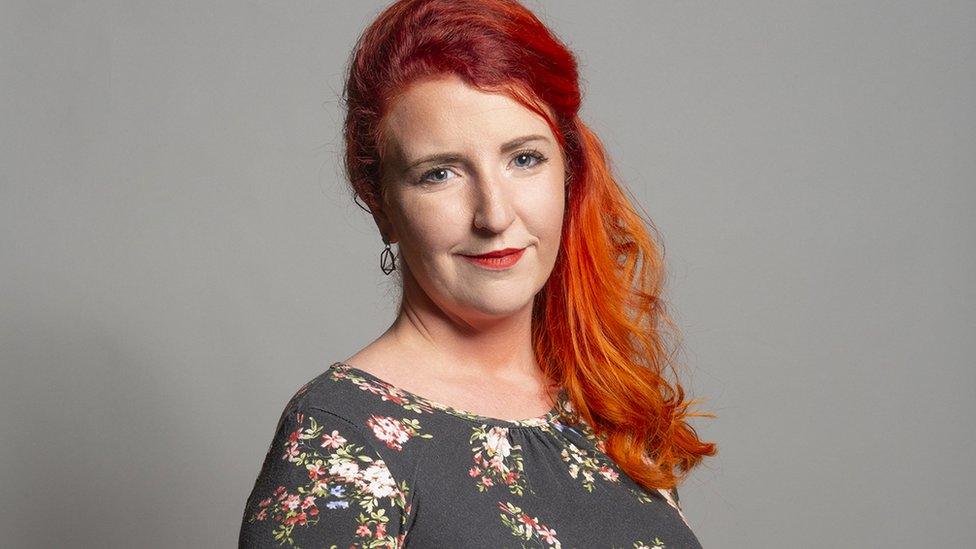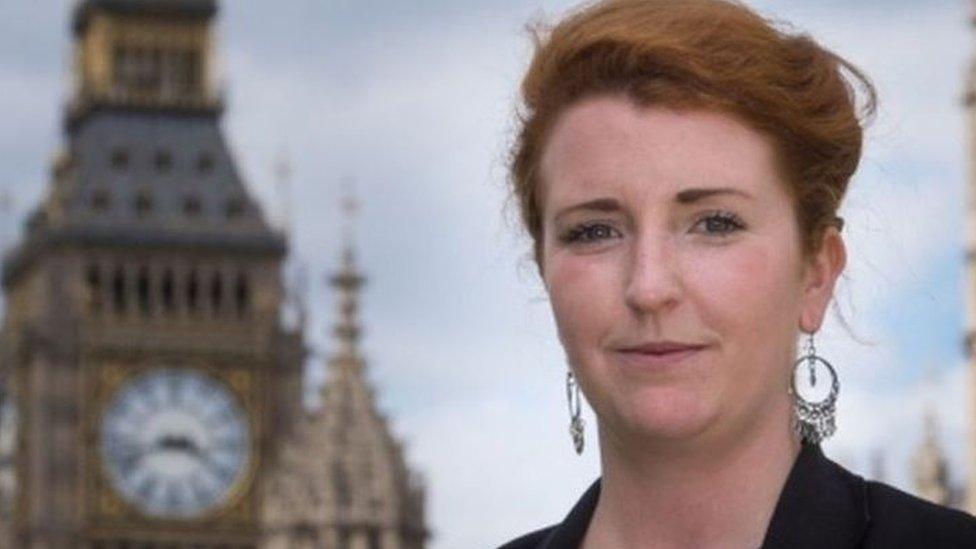Louise Haigh's Irish unity poll remarks criticised by unionists
- Published

Louise Haigh said she would not be a "persuader for the union"
Unionist politicians have criticised the shadow Northern Ireland secretary after she said Labour should be neutral if there was an Irish unity referendum.
Louis Haigh told GB News it was not her job "to be a persuader for the union".
In July, her party leader Sir Keir Starmer said he would campaign to keep Northern Ireland in the UK in the event of a border poll.
The Democratic Unionist Party leader said the UK government should never be neutral on the issue.
Sir Jeffrey Donaldson said there was "absolutely nothing in the Belfast Agreement or elsewhere that prevents the government endorsing the union".
In response, a Labour spokesman said the party was staying true to the principles of the Good Friday Agreement.
Speaking to GB News, Ms Haigh said: "The principle of consent is still very much intact and it is only for the people of Northern Ireland to determine their own constitutional future and polls still suggest that there is a very firm majority in favour of remaining in the United Kingdom.
"It's not my job to be a persuader for the union, that was an important principle that led up to the Good Friday Agreement.
"We are a unionist party in the Labour party, but if there is a border poll then we should remain neutral."
'Shrugging its shoulders'
Ulster Unionist Party assembly member Steve Aiken said Ms Haigh's approach was "very puzzling and her comments are contradictory to say the least".
He said: "Nobody considers it even remotely likely that the Republic of Ireland's Government would adopt a stance of neutrality.
"If the shadow secretary of state has her way, we would be facing a future referendum campaign whereby the Dublin government would be campaigning actively for unity, but a Labour administration in London would be effectively standing with its hands in it pockets, shrugging its shoulders, not caring either way if the United Kingdom as we know it, continues to exist or not".


It all comes down to one word in the Good Friday Agreement and how it might be interpreted
The accord states: "It is for the people of Ireland alone by agreement between the two parts and without external impediment to exercise their right to self-determination on the basis of consent"
For many impediment means no interference from the government at the time a border poll is held as it will be for the people of "Ireland alone" to decide their fate.
But how might that work in practice?
Does it mean the party in government and its MPs can cheerlead for the union in a poll as along as the machinery of state is not wheeled into the campaign ?
Or could it be argued that "impediment" only refers to any move by the government to obstruct the outcome of a border poll which leaves it free to take sides before the vote
Some nationalists have even suggested a Northern Ireland secretary could be considered an "external impediment" if they refuse to call a border poll when others feel the conditions to hold one have been met.
The Good Friday Agreement provided some broad brush strokes when it comes to a border poll, all of which will likely be tested in court if a vote is triggered
The detail will only come when London and Dublin legislate for their respective referendums
Until then much of what was agreed back in 1998 will continue to be lost in translation

When asked about Ms Haigh's comments the prime minister's spokesman said he had not spoken to Boris Johnson about them but that "certainly the UK believes strongly in the importance of the union and we will continue to do everything possible to highlight the significant benefits it presents in every part of the UK".
However SDLP leader Colum Eastwood tweeted: "Why are unionists & right wing British commentators getting so upset about Labour saying they won't actively campaign in a border poll?
"That has always been their position because they understand that it's up to us, the people of Ireland - north and south, to decide our future."
Related topics
- Published27 September 2021
